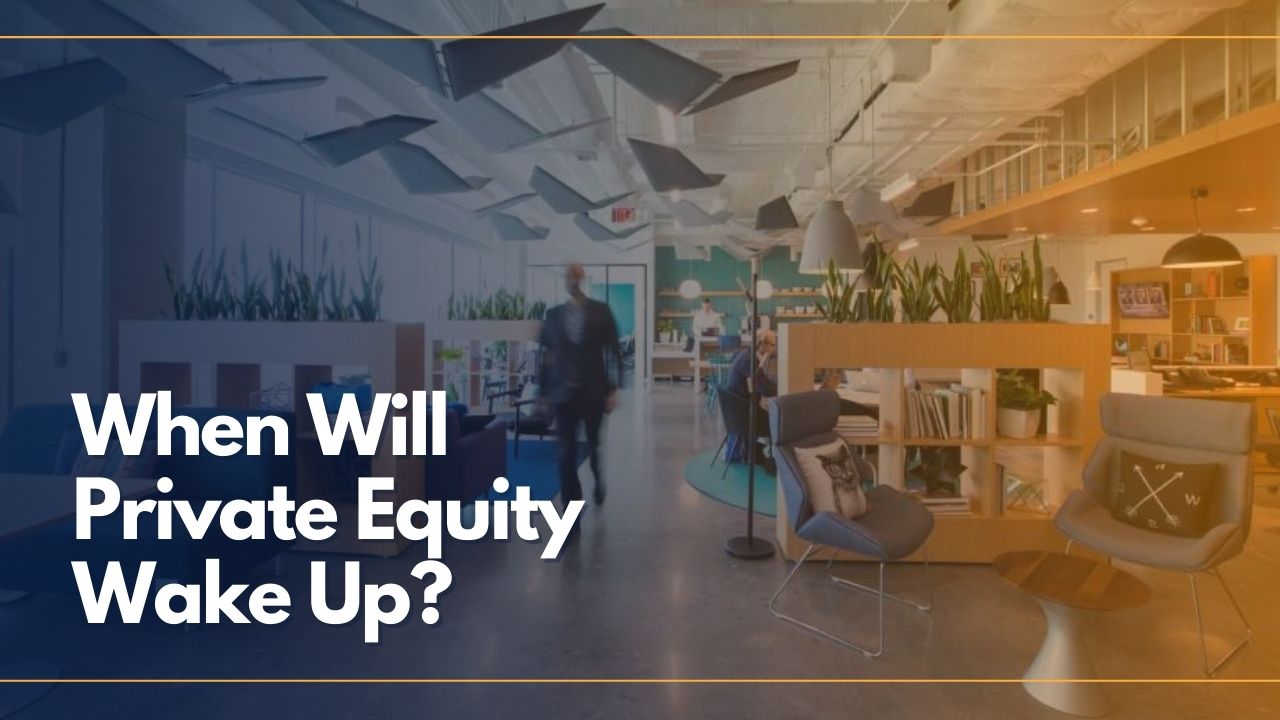- Jonathan Price investigates rumours of a possible bid for IWG by a US private equity firm.
- The stumbling block to a deal may have been the price demanded by Mark Dixon, but is “destructive doublethink” also at play?
- The only logical conclusion is that big US fund managers are not seriously interested in the future of work; they are just paying lip service to their investors.
I am writing this article from Stratford upon Avon, birthplace of England’s greatest playwright, William Shakespeare, hoping that some of his poetic brilliance may have rubbed off on me during my brief visit.
The topic of this week’s article is the discussion said to have taken place at the end of last month about a possible bid for IWG, the world’s largest coworking company, by CC Capital, a US private equity firm.
Such rumours surface from time to time and so far, have all come to nothing. The identity of the bidder is really not important, though also not in the least surprising, but I want to consider why this, and all previous bids, have come to nought.
I have not been involved in any of the discussions so far, but I suspect that the stumbling block to a deal may have been the price demanded by Mark Dixon, CEO and major shareholder of IWG.
Dixon has been reported as being “unlikely” to be willing to sell at any price under the all-time high of 469p per share reached in pre-Covid times, though I personally consider it ‘unlikely’ that a teenage scribbler at a minor broker would have any insight into what price a major strategist like Mark Dixon would be willing to sell for.
“Destructive doublethink”
Rather than discussions foundering on some mythical demand for a record price, I think it is more likely that the potential bidders are all engaged in a sort of destructive doublethink — the Orwellian concept that has a person simultaneously holding two mutually inconsistent beliefs.
The private equity houses that are the most keen to IWG, believe first that the way we all work in the future is going to be different than it was in the past, and that flexibility is going to be the key to future success. It is difficult to find anyone who is thinking about the future of work, who doesn’t believe this, so it should not come as a surprise.
It is natural therefore that they should be looking for a way to invest in the future of flexible work.
The second belief that they hold is that they should not have to pay a bigger premium over the current share price to buy IWG than they would pay to buy any other real estate company, estimated to be 25%. This belief is totally inconsistent with the first belief for the simple reason that the other real estate companies represent the past, and IWG represents the future.
It’s like saying that if you could buy General Motors at a 25% premium to its share price, you wouldn’t pay a bigger premium to buy Tesla. At the same time, investors are falling over themselves to pay a massive premium over practically any parameter you care to name, to buy Tesla over GM or Ford. Why? Because Tesla represents an exciting future and General Motors represents a boring past.
For the same reasons it doesn’t make sense to apply the same criteria to IWG as you would to a traditional real estate company.
“In this business, scale is the main driver of profitability and of value”
Jonathan Price
There is another reason why this doublethink is so absurd – these same investors are not applying the same criteria to WeWork, IWG’s big rival. In WeWork’s case they are recognising the flexibility premium, and are going along with a de-spac valuation of $9 billion, while they refuse to bid even half that for IWG.
There is no justification for this valuation gap. In this business, scale is the main driver of profitability and of value, and IWG is bigger than WeWork.
IWG is also profitable; WeWork is not, and maybe never will be.
IWG has a high quality management; for most of its short life WeWork was run by a messianic CEO whose only useful quality was that Masayoshi Son liked him. IWG’s centres are better suited to the future of work than WeWork’s are.
I could go on, but there is little point. Anyone who can’t see that IWG is better than WeWork is not going to be convinced by mere logic.
The final consideration should be one of scarcity value.
If a big investor wants to invest in the future of work on a significant scale, say $5 billion, how can they do it? There are not many options available, in fact there are just two, WeWork and IWG. One of those companies comes with a whole heap of baggage including significant liabilities to its former messiah and with a distinct lack of profit; the other comes in pretty good working order, albeit that there are always improvements that can be made.
In saying that there are only two, I accept that it would be possible to assemble a third coworking company using some kind of consolidation strategy, but it would be quite time-consuming and expensive to do, so why would you bother when there is not one, but two ready made vehicles for sale?
Future-washing
The only logical conclusion is that big US fund managers are not seriously interested in the future of work. They are just paying lip service to their investors, just as they do with environmental concerns.
In this case it’s not green-washing, it’s future-washing and they will get away with it as long as they can.
Here is my prediction. One day not too far from today, one of the big investors will wake up and smell the coffee and will realise that IWG is a bargain if you can get it for less than what has been agreed for WeWork.
Once that deal is done, other investors will wake up, realise they have missed a trick and start bidding for WeWork, driving the price of both shares up in the process. Finally, once prices have risen enough and the future of work has become the present, it will start to look worthwhile to set the consolidation plan in motion, to create a third player in this space. Then the future of work will truly have arrived.
In honour of my present location, I feel I should end this article with a quotation from the Bard, so to represent the dawning realisation of the opportunity staring investors in the face, I will ask, as Romeo, “But, soft! what light through yonder window breaks?”



 Dr. Gleb Tsipursky – The Office Whisperer
Dr. Gleb Tsipursky – The Office Whisperer Nirit Cohen – WorkFutures
Nirit Cohen – WorkFutures Angela Howard – Culture Expert
Angela Howard – Culture Expert Drew Jones – Design & Innovation
Drew Jones – Design & Innovation Jonathan Price – CRE & Flex Expert
Jonathan Price – CRE & Flex Expert













